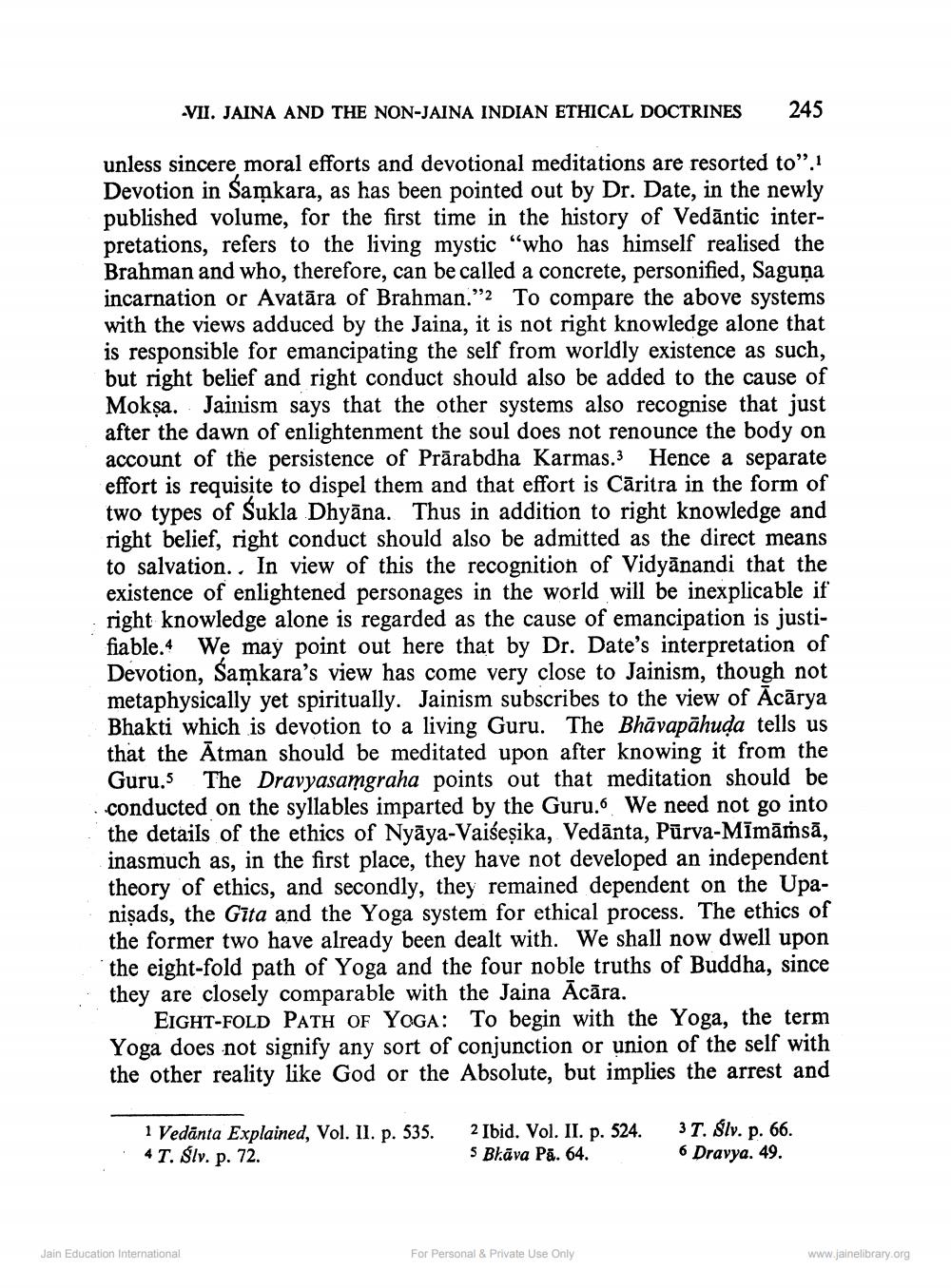________________
-VII. JAINA AND THE NON-JAINA INDIAN ETHICAL DOCTRINES
245
unless sincere moral efforts and devotional meditations are resorted to".1 Devotion in Samkara, as has been pointed out by Dr. Date, in the newly published volume, for the first time in the history of Vedāntic interpretations, refers to the living mystic "who has himself realised the Brahman and who, therefore, can be called a concrete, personified, Saguņa incarnation or Avatāra of Brahman.” To compare the above systems with the views adduced by the Jaina, it is not right knowledge alone that is responsible for emancipating the self from worldly existence as such, but right belief and right conduct should also be added to the cause of Moksa. Jainism says that the other systems also recognise that just after the dawn of enlightenment the soul does not renounce the body on account of the persistence of Prārabdha Karmas. Hence a separate effort is requisite to dispel them and that effort is Cāritra in the form of two types of Sukla Dhyāna. Thus in addition to right knowledge and right belief, right conduct should also be admitted as the direct to salvation.. In view of this the recognition of Vidyānandi that the existence of enlightened personages in the world will be inexplicable if right knowledge alone is regarded as the cause of emancipation is justifiable. We may point out here that by Dr. Date's interpretation of Devotion, Samkara's view has come very close to Jainism, though not metaphysically yet spiritually. Jainism subscribes to the view of Ācārya Bhakti which is devotion to a living Guru. The Bhāvapāhuậa tells us that the Ātman should be meditated upon after knowing it from the Guru.5 The Dravyasamgraha points out that meditation should be ..conducted on the syllables imparted by the Guru... We need not go into the details of the ethics of Nyāya-Vaiseșika, Vedānta, Pūrva-Mīmāṁsā, inasmuch as, in the first place, they have not developed an independent theory of ethics, and secondly, they remained dependent on the Upanişads, the Gita and the Yoga system for ethical process. The ethics of the former two have already been dealt with. We shall now dwell upon the eight-fold path of Yoga and the four noble truths of Buddha, since they are closely comparable with the Jaina Acāra.
EIGHT-FOLD PATH OF YOGA: To begin with the Yoga, the term Yoga does not signify any sort of conjunction or union of the self with the other reality like God or the Absolute, but implies the arrest and
1 Vedānta Explained, Vol. II. p. 535. 41. Śly. p. 72.
2 Ibid. Vol. II. p. 524. 5 Bkāva Pā. 64.
31. Álv. p. 66. 6 Dravya. 49.
Jain Education International
For Personal & Private Use Only
www.jainelibrary.org




